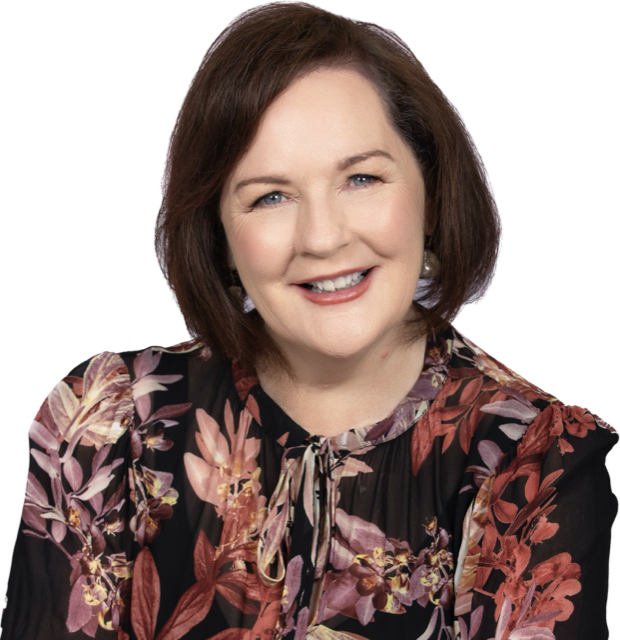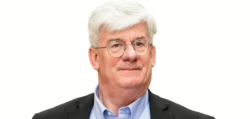
Deborah Ralston wears a lot of different hats. She also has a string of titles; Chair Household Capital Advisory Board, member of Board of Guardians for the Future Fund, Professorial Fellow at Monash University. And luckily for Retirement Essentials, a non-executive Director for our parent company, SuperEd.
Yet Deborah is refreshingly plain spoken when it comes to retirement income. With ‘not-so-common’ common sense views on how retirees can stop fearing running out and more simply manage their ongoing income needs.
In 2019 Deborah was one of three individuals asked to join an independent panel to undertake a comprehensive review into Australia’s’ retirement income system. In July 2020 the panel reported on the efficacy of our system under the broad headings of adequacy, equity, sustainability and cohesion. So it’s fair to say that Deborah knows a thing or three about how retirement income works – and how it might be improved.
When asked about the single issue that stood out above others, she didn’t hesitate:
‘Complexity. How the pieces come together. It’s really difficult to juggle the complex mix of Age Pension entitlements, superannuation income and private savings. Given the new laws in the Retirement Income Covenant which came into effect on 1 July this year, super funds will now need to give guidance on how people can maximise their future earnings. I believe Retirement Essentials is already a great help for those making applications and wondering how their own particular pieces come together as well’
With super funds required by law to step up, is this enough or is a wider rethink of our system necessary?
‘Yes, we need to change the way we think and talk. For instance the term ‘nest egg’ is holding us back from a good standard of living in retirement. Many retirees die with up to 90% of their super funds intact. Surely it’s more important that they enjoy a good standard of living while they are still here? And the concept of a million dollar retirement is not useful. It’s a totally false bar. Most retirees won’t have anywhere near that amount and it just causes stress to suggest that it’s a useful goal. It’s more realistic to aim for an amount that is commensurate with your work income – say 70% of a full time after-tax salary.’
According to Deborah, there is lots of good news about our system and how it affects the prospects of the majority of retirees to enjoy a comfortable later life
‘Research tells us that retirees are feeling far less financial stress than people who are still in the midst of their working lives. Australia’s home ownership – particularly for older people – is amongst the highest in the world. The equity in these homes is three-four times the amount of super most are holding. So we are learning to view the home as another pillar of retirement income – or the most significant part of the pillar described as ‘private savings’.
And then there are the benefits associated with what Deborah calls ‘social transfers in kind’:
‘There are significant benefits available for older retirees including tax concessions, supplements and concession cards, aged care and health benefits including the Commonwealth Seniors Health Card, which on average amount to the equivalent of a single Age Pension entitlement for those over 65s . So it is critical that this age group is aware of all possible entitlements as it can deliver a good quality of life, commensurate with that experience whilst still working. That is not to say that everyone in retirement is living comfortably. It is a particularly challenging time for people who are renting and those who leave the workforce under Age Pension age, on the JobSeeker allowance. It’s very difficult to juggle money on such a constrained income.’
Deborah also believes that our long term compulsory superannuation scheme has assisted Australia to consistently rank in the top ten in the Mercer Global Pension Index since it its inception in 2009.
So what does she wish to see changed or introduced to further improve the functionality of our system?
‘I would love to see super funds include in the annual member statements a simple forecasts on your expected level of income in retirement. People would then be better informed and could become more engaged in the way their money can support them into old age. I believe that digital technology – so called ‘fintech’ – will aid many organisations to help retirees better understand their money management.
What should ordinary retirees do to better manage their future income?
‘Increased financial literacy is important for everyone, regardless of circumstance, as it gives you the knowledge and courage to manage your money more actively. It is important that we are always active in asset allocation decisions and that we ask for help when we need it. I am a massive fan of simple, cost effective, easy to understand advice.
And finally, what piece of advice would you offer your 20-something self in terms of future wealth?
‘To use the power of compound interest! Small amounts add up and multiply so quickly. Start with the price of a cup of coffee, and watch your savings grow!
Abd of course make sure you get all your Government entitlements.





To say the system is complex is so correct. Unfortunately no one knows when they will die so how can you plan how much money you will need? Also if one partner dies much earlier than the other they could find themselves on the basic pension. Worrying indeed.
Completely agree with our system being too complex. It’s crazy the amount of rules and regulations there are. Why? I’m a reasonably intelligent person and have been studying the rules and regulations with regard to retirement for quite some years – even when you do get a bit of a handle on it, the rules are changed again. How do individuals who are not particularly literate manage? They would be very vulnerable and open to being ripped off. No wonder people lose interest and don’t want to engage with their superannuation, Centrelink or Financial Advisors.
A very insightful piece. I worked through my age pension entitlements on my own, but with the help of the retirement essentials articles (sorry but there were a few complexities). I nominated my super pension income and to my surprise I finally received advice of our fortnightly age pension amounts which was in excess of what I had calculated. It took 6 months of research and running scenarios to get to this point. One of the key issues was to give Centrelink everything up front (including family trust information and financials – another huge form) . My application went to complex assessment team and it took a bit longer but was accepted without requiring other information. The Pension Concession Card has already shown its worth. This article makes me reflect that I might be able to scale back on the super pension amount . Thanks to retirement essentials for helping me to complete the journey. I may still avail myself of the financial advice service which seems a very reasonable cost.
after dealing with centre link after turning 65 in feb i did not get my first payment till sept because of red tape or a form i did not fill out that failed to give me iam now 71 and finally got my full pension less two dollars